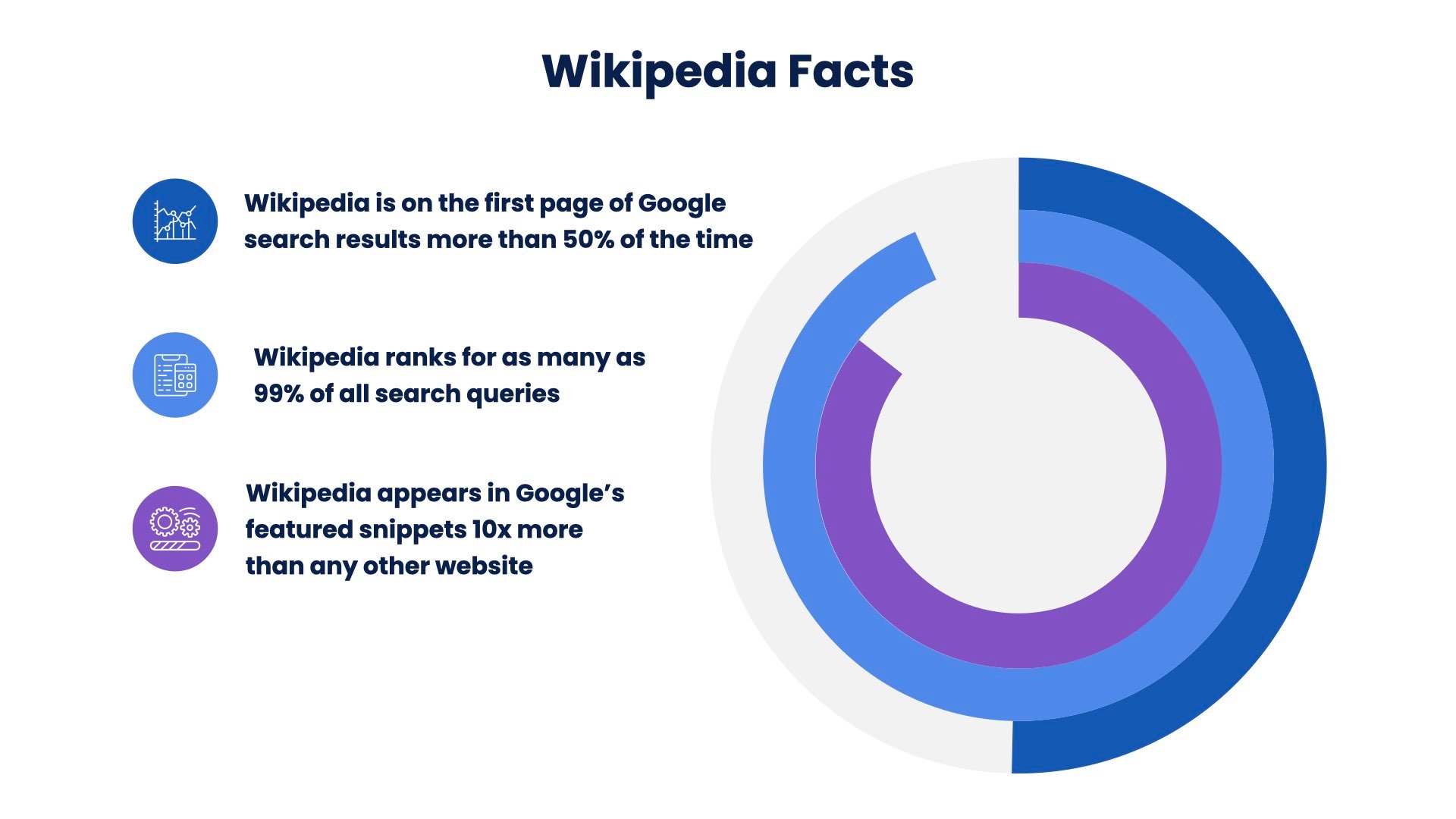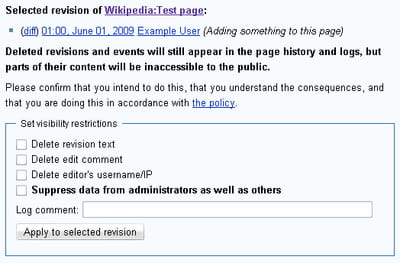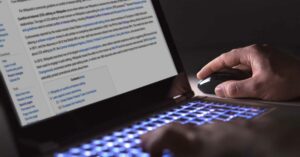Editing Wikipedia: Do’s and Don’ts
WHO CAN EDIT IT, WHO SHOULD EDIT IT, AND WHEN TO STAY AWAY
Wikipedia is a one-of-a-kind platform. The best way to describe it is a not-for-profit, collaborative encyclopedia. While there are many alternatives, Wikipedia is the most visible online encyclopedia. It gets a lot of attention so it’s no surprise people with a Wikipedia page would want to edit the page themselves.
Wikipedia is so powerful because many writers anonymously and freely contribute their knowledge, which is checked and rechecked by other contributors, readers, and admins. Wikipedia is in constant churn and editors check the work of others constantly. When they find something strange going on, like someone editing their own page, they call them out.
Even with the decentralized nature of Wikipedia, many believe it cannot be trusted due to its reliance on information from what are often unverified sources, but also the editors themselves. Most editors are neutral on a subject, as it should be. But some have an agenda. For instance, competitors with an agenda, activist editors, badly sourced material, and of course the actual subject of the Wikipedia page, can all edit it. But just because they can doesn’t mean they should.
When done correctly, Wikipedia editing can deliver a boost in corporate reputation, brand awareness, traffic, and revenue, but Wikipedia mistakes can be fatal. So it is easy to see why the subject of a page would want to edit it themselves. Wikipedia has a name for it – Conflict of Interest editing.

Can you edit Wikipedia?
Yes, you can edit Wikipedia. Everyone can unless a page is “protected“.
Editing is open to anyone and everyone with an internet connection. All you have to do is click the “edit this page” tab or “edit” next to the heading of the section you’d like to edit. The only requirement is that the content you post is verifiable and notable. You can also post a new article with the Article Wizard.
It helps to include citations from reputable sources with your edits.
Wikipedia’s administrators protect pages that are prone to vandalism, which they define as the addition of abusive language or falsehoods. So only registered users or administrators can edit the information on those pages.
It is also frowned upon (and punishable but not illegal) for users to edit pages of people, organizations, businesses, etc. that are personally or professionally connected to them. As mentioned above, this creates a conflict of interest and threatens the factual, unbiased objective of the platform.
What are the benefits of editing Wikipedia?
Describing the Wikipedia vision, co-founder Jimmy Wales said, “Imagine a world in which every single person on the planet is given free access to the sum of all human knowledge.” There’s no denying the power of that statement and the massive value in sustaining such an honorable undertaking.
If you ask Wales, his co-founder Larry Sanger, or some of its biggest contributors, they will tell you the primary benefit of editing Wikipedia pages is in sharing your knowledge with so many people, helping everyone from students to presidents.
For some users, however, the burning question about editing is whether they can benefit from editing their own Wikipedia page. Yes, but most people who edit their own pages make mistakes. For instance, their IP can be tracked if not logged in, the language of the edits is often suspect, and when people edit their own pages they tend to be less than objective. Editors can often smell a conflict of interest edit. When caught, the changes are reversed, the user may be banned, and a big banner is placed at the top of the page telling the world about the suspect edit. Here is an example:

Because of the conflict of interest issue, it’s not worth it to edit your own page—but that doesn’t mean people don’t try to have others do it for them.
Who should edit a Wikipedia page?
Many businesses use reputation management companies to make sure their Wikipedia pages are complete and accurate.
A well-written, unbiased, complete, and accurate Wikipedia page for your business boosts your corporate reputation and brand awareness quickly and dramatically. Why? Because Wikipedia pages rank very highly on Google.
Wikipedia articles are on the first page of search results in 99% of searches. Some Wikipedia articles hit the first page within 24 hours of being posted.
Next to Google My Business for local SEO, Wikipedia has to be one of the most powerful SEO strategies on Google. It can also help drive a solid stream of traffic to your website with strategically-placed links and can enhance your credibility by generating perceived domain authority.

Should I create a Wikipedia page?
For yourself
If you’re thinking of creating a biographical Wikipedia page about yourself, the answer is no.
As the Washington Post puts it, if you belonged there, you would be there. Again, it’s not about fame or publicity. It’s about being worthy of notice on a permanent level and having verifiable info.
It is not often that Reputation X is asked to create a Wikipedia page for someone that is actually notable enough. It does happen though.
A great example of a living person who qualifies for his own Wikipedia page is Elon Musk, whose achievements and innovations have had a significant and lasting impact on American and global society.
Wikipedia’s biographies of the dead include Duchess of Windsor, five-time Tour de France winner Bernard Hinault, and a Canadian spree killer who avoided the death penalty with an insanity plea. These are all “notable” individuals – living or dead.
For your business
Whether or not you should create a page for your business depends on what information could potentially end up on your page. Once you create your page, anyone can edit it to include negative information that you may be trying to address or counteract.
Some business owners, after experiencing reputation damage, create Wikipedia pages hoping to pad the first page of search results and bump negative content to the second page. This tactic works quite well if the company is in fact notable to earn a Wikipedia page.
Any content linked from your Wikipedia article will receive a bit more visibility since it is referenced by so strong a site. But Wikipedia links are all “nofollow” meaning that Google and other search engines tend not to pass “authority” from Wikipedia.
Unfavorable Wikipedia content
If someone adds unfavorable information to your Wikipedia page with links to the negative content you were trying to suppress, that negative content will receive a similar boost in visibility. Wikipedia links are a double-edged sword. This can display the source of your reputation damage on the first page of search results, leaving you in a worse position than when you started.
As an example, Apple Inc.’s Wikipedia page has a section entitled Criticism and Controversies. If Apple was not such a global titan, the information in that section could have a serious impact on their reputation (by the facts themselves and by those facts pushing condemning articles into public view).
You should only consider creating a Wikipedia page for your business if you have a solid reputation management strategy in place to defend against reputation damage. If you’ve experienced a recent reputation crisis like a recall or security breach, or if you’re at risk of reputation damage from whistleblower activity, CSR issues, etc., you should avoid making a Wikipedia page until those reputation issues have been addressed and mitigated with a professional reputation management strategy. Why? Because the controversies may leak into your page.
Can you remove yourself from Wikipedia?
One of the reasons you have to be very careful when deciding whether to create a Wikipedia page for your business is that they are not easy to delete once they’re published with credible information.
You can request the deletion of a page, but it has to be approved by an admin or through a consensus voting process, which won’t happen without a valid reason.
Request the “speedy deletion” of a page by typing at the top of the page.
If you created the page, add 0 at the top of the page. You can remove content you added if it has not been changed or used as supporting information for other articles or other parts of the same article. And of course, you have to have a legitimate reason for removing content.
Why did my Wikipedia edit get removed?
There are several reasons your content might be removed from Wikipedia.
A new article might get deleted if it’s not notable, meaning there’s no independent, reliable source for the information. If you have a close connection with the topic, you should not be editing the article. That means you should not create or edit the page for your own business. If anyone knows or suspects that you have edited your own page, they can tag the article for “conflict of interest” and have the content or the entire article deleted.
Spamming articles with your website link can also get your content deleted and your URL permanently banned. If your article or edit is poorly formatted, other editors are going to notice and they’re going to analyze and change your content. If an editor recommends your article for deletion, you can defend your article on the talk page, correct identified issues, or participate in a consensus vote to keep or delete the page.

Can you get in trouble for editing Wikipedia?
Vandalism is what Wikipedia calls the act of editing a project with malicious or disruptive intent. Vandalism is relatively common on Wikipedia because anyone can edit most pages and because there aren’t many other sites that allow this kind of user participation.
Wikipedia uses ClueBot NG, a crawler that uses machine learning and Bayesian stats, to watch out for vandalism. The edit filter can also prevent vandalism itself by blocking edits that are not submitted by admin or confirmed users.
Titles on the MediaWiki blacklist extension can only be created or moved by administrators. Pages that are created or vandalized repeatedly are typically added to this list.
There is also a spam blacklist that prevents external link spamming. New and unregistered users who want to add a link have to answer a CAPTCHA. Images have their own blacklist that disallows any listed photo from being used without explicit permission.
Wikipedia Editing FAQs
Do you need an account to edit Wikipedia?
Depending on the page you’re trying to edit, you might be required to make an account. Some pages are frequent targets of vandalism and Wikipedia works to suppress facetious and malicious posting by only allowing registered users to edit those pages. You should not need an account to edit less renowned or vulnerable pages.
Can Wikipedia be trusted?
Wikipedia itself tells you that Wikipedia is not a reliable source. This is because Wikipedia is run by volunteers who cannot always monitor all editing on all pages. There is an impressive amount of verification across the site, but at any given time, the page you’re looking at could have incomplete or inaccurate information.
Who edits Wikipedia?
While anyone can edit Wikipedia according to the guidelines, there are some contributors who edit more than others. In fact, one man has edited more Wikipedia pages than anyone else in the world. That man is Steven Pruitt, who has written nearly 35,000 original Wikipedia articles and has made almost 3 million accepted edits.




